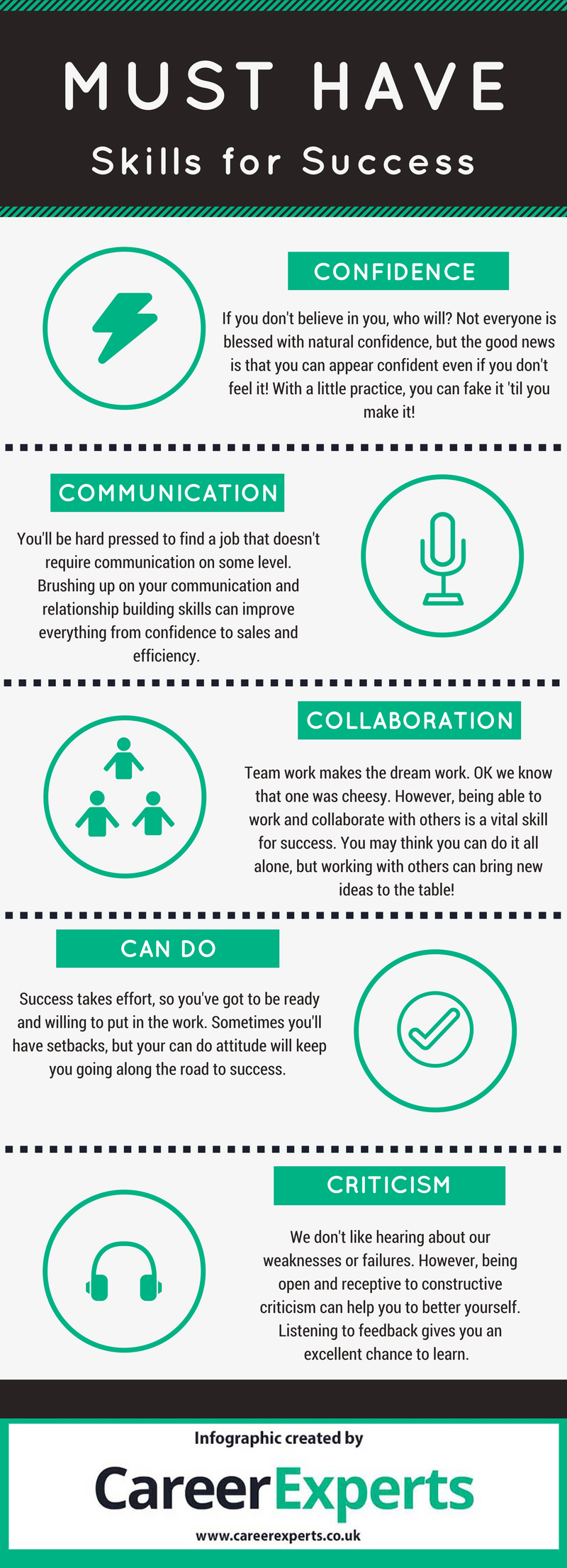While every job has its own specific criteria for success, there are a few universal skills that will help you excel no matter which career path you choose to go down. Caroline Wilson, Head of HR at security specialist Evander, shares her pick of the top 5 skills that will help you find success in any job.
In order to be successful in any role, there are a number of particular ‘ingredients’ that need to come together. Obviously, your competence in any line of work will be determined by things like your skillset and enjoyment of the job, but in general, there are five key skills that should stand you in good stead no matter what the role. Learning to cultivate these skills can help you to achieve more, work well with others, and even help to secure you a pay rise.
Adopting and honing these important skills can improve your relationships with colleagues, clients, and customers alike, so read on to find out where you should be concentrating your efforts when it comes to your professional development.

1. Communication
A lack of communication is the cause of the majority of problems we have with others. Think back to when you’ve had a challenging time at work and consider the impact that better communication may have had.
Of course, being able to communicate any concerns or issues in the correct way is just as important as communicating in the first place. For instance, if your workload is heavy and someone is asking for help you’re unable to provide at that time, being firm but calm is usually the best course of action. Snapping back with, ‘I haven’t got time now,’ or similar can be counterproductive — remember that the person asking you for help is just trying to do their job too. Apologising for being busy and then pointing them in the direction of someone who may be able to help will show that you have considered their request and, while you haven’t been able to help directly, you’re still aiding in finding a solution.
2. Collaboration
Working well with others is just as important as being able to work well on your own and, while you may have some good ideas about how a certain job needs to be done, there’s a lot to be said for considering the opinions and ideas of your colleagues. Working well with others is an essential part of most jobs, as well as personal relationships outside of work.
Being able to listen to and entertain the ideas of others, as well as having the ability and willingness to adapt your own ideas, shows that you’re a team player. Leaving your pride at the door and working towards helping the business, rather than just yourself, is an attitude that many employers covet.
3. Criticism
Being able to take criticism is vital, as there will be a natural learning curve that comes with any role. Of course, if you are being criticised in an unfair or scathing manner, this should be taken up with a manager. Constructive criticism is a different thing altogether, and it says a lot about a person when they can admit genuine mistakes and have the willingness to learn what to do differently next time.
Giving criticism in the correct way is also important, as it can cement decent working relationships with your colleagues and mean that they’re not afraid to ask you for help. Showing someone how to do something in the correct way, without shouting, using inflammatory language or implying that they are useless or stupid is hugely important.
4. Can-do attitude
Having a can-do attitude is a brilliant motivator for both yourself and your colleagues, but it’s essential that the correct balance is found. If your can-do attitude means that you’re overloaded with work because you’re trying to do everything yourself, then this can be counterproductive. However, coming into work with a positive attitude, a smile, and a willingness to get stuck in goes miles towards strengthening a good reputation.
This attitude is very important when you first start a job, as it shows you’re keen to be productive. Requesting more work, asking questions about the role and offering to help before you’re asked will put you in a good light. What’s more, you’ll learn a lot faster and help cement a great relationship with your peers.
5. Confidence
Finally, having confidence is always a beneficial skill to draw upon. Showing that you have the charisma to ask questions, speak up, and be clear with your intentions and concerns will demonstrate that you have what it takes to make a success of yourself in the role.
Of course, stopping short of cockiness is paramount, as confidence can very quickly grow into something altogether more ugly. Being too cocky can cause issues with both colleagues and customers — finding the right balance may well also depend on the personalities of those you’re working with, so being able to adapt to this will help hugely in the long run.
Whether you’re just starting your climb up the career ladder or you’ve been working for years, keep these five tips in mind and you’re sure to excel in any job and give yourself the best chance of success.

